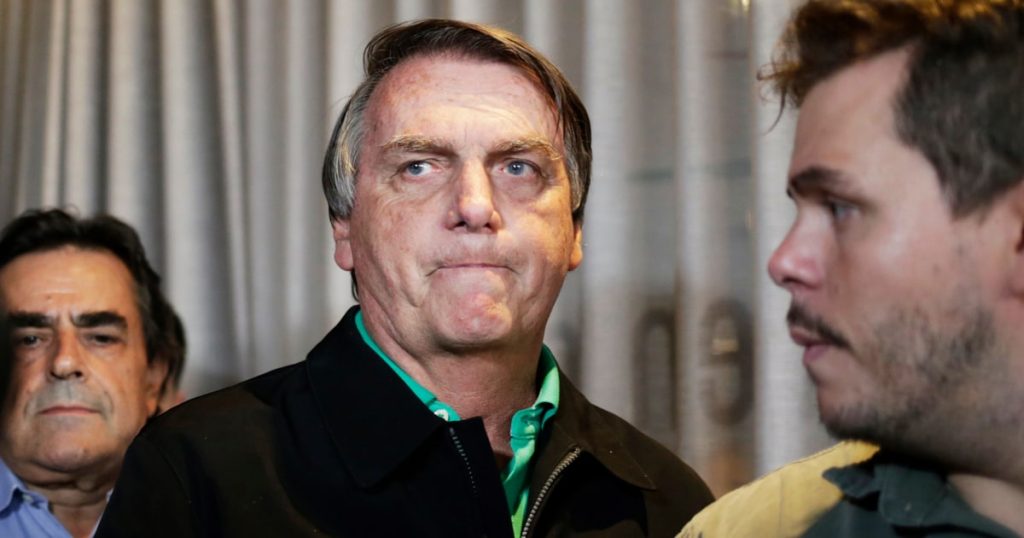Brazil’s Federal Police have launched an investigation into former President Jair Bolsonaro’s stay at the Hungarian embassy in Brasilia, following speculation that he may have been attempting to evade arrest. The investigation was prompted by a report from The New York Times, which included security camera footage of Bolsonaro at the embassy and his interactions with the Hungarian ambassador. This visit came shortly after Federal Police seized Bolsonaro’s passports and raided the homes of his top aides as part of a probe into potential election-related crimes.
Bolsonaro has denied any wrongdoing in relation to the investigations targeting him, including the probe into election interference. If the Federal Police were to obtain an arrest warrant for him, they would not have jurisdiction to enter the Hungarian embassy due to diplomatic conventions. Bolsonaro’s lawyers have stated that his stay at the embassy was due to an invitation and that he used the opportunity to meet with authorities from Hungary to discuss political scenarios in both countries. The former president has also mentioned that he has close relationships with various international leaders, including Hungarian Prime Minister Viktor Orbán.
The Brazilian foreign ministry has summoned Hungary’s ambassador to explain Bolsonaro’s presence at the embassy. Previous controversies surrounding Bolsonaro’s travels, such as his trip to the U.S. at the end of his term, have fueled speculation that he may once again be planning to escape. Some of Bolsonaro’s political rivals have called for his arrest, citing the recent embassy stay as evidence of potential flight from legal proceedings. Criminal lawyer Augusto de Arruda Botelho has suggested that Bolsonaro’s actions could be considered grounds for preventive detention based on the classic motive of seeking refuge in an embassy.
The investigation into Bolsonaro’s stay at the Hungarian embassy adds to the numerous legal challenges he is facing, including probes into potential crimes related to election manipulation. The former president’s refusal to acknowledge any wrongdoing and his defense of his actions suggest a complex and contentious legal battle ahead. Bolsonaro’s interactions with international allies and his attempts to navigate diplomatic channels in the face of legal scrutiny further complicate the situation. The outcome of the investigation and the response from Brazilian authorities will be closely watched as the country grapples with the aftermath of Bolsonaro’s presidency.
In the midst of these legal challenges and controversies, Bolsonaro continues to engage with his political base and present himself as a key player in Brazil’s political landscape. His supporters have rallied around him, while his critics view him as a potential flight risk who must be held accountable for any potential crimes. The intersection of diplomatic conventions, legal proceedings, and political maneuvering creates a volatile situation that will shape Brazil’s future trajectory. The evolving narrative around Bolsonaro and his actions underscores the complexities of power, accountability, and justice in a rapidly changing political environment.


